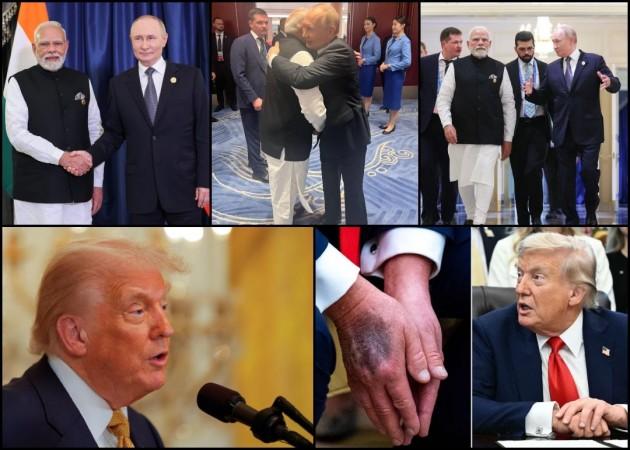
US President Donald Trump on Wednesday launched a blistering attack on Chinese President Xi Jinping for hosting Russian President Vladimir Putin and North Korean leader Kim Jong Un at a grand military parade in Beijing.
In a strongly worded post on Truth Social, Trump accused the trio of "conspiring against the United States" and questioned whether China would acknowledge the American soldiers who "gave their blood" to help liberate the country during World War II.
The event was held to commemorate the 80th anniversary of the end of World War II.
In a post that was part condemnation and part sarcasm, Trump questioned whether China would acknowledge the role the United States played in helping liberate it from Japanese occupation during World War II.

"The big question to be answered is whether or not President Xi of China will mention the massive amount of support and 'blood' that The United States of America gave to China in order to help it to secure its FREEDOM from a very unfriendly foreign invader," Trump wrote.
"Many Americans died in China's quest for Victory and Glory. I hope that they are rightfully Honored and Remembered for their Bravery and Sacrifice! May President Xi and the wonderful people of China have a great and lasting day of celebration," he added.
In a striking closing line, Trump quipped: "Please give my warmest regards to Vladimir Putin, and Kim Jong Un, as you conspire against The United States of America."
Trump's remarks come as Beijing hosts an elaborate military parade featuring some of its closest allies, including Russian President Vladimir Putin and North Korean leader Kim Jong Un.
Footage from the event showed Kim shaking hands with Xi, in a rare public appearance outside North Korea. Xi was also seen warmly greeting Putin, following their recent meeting at the Shanghai Cooperation Organisation (SCO) Summit in Tianjin.
The parade marks eight decades since the end of World War II, during which China suffered immense casualties during its fight against imperial Japan.
The US and China were wartime allies in the 1930s and 1940s, before relations eventually soured during the Cold War and again in recent years over trade, technology, and global influence.
(With inputs from IANS)















